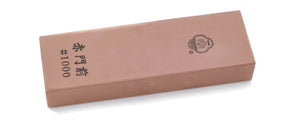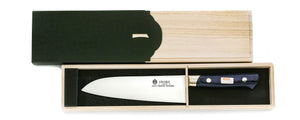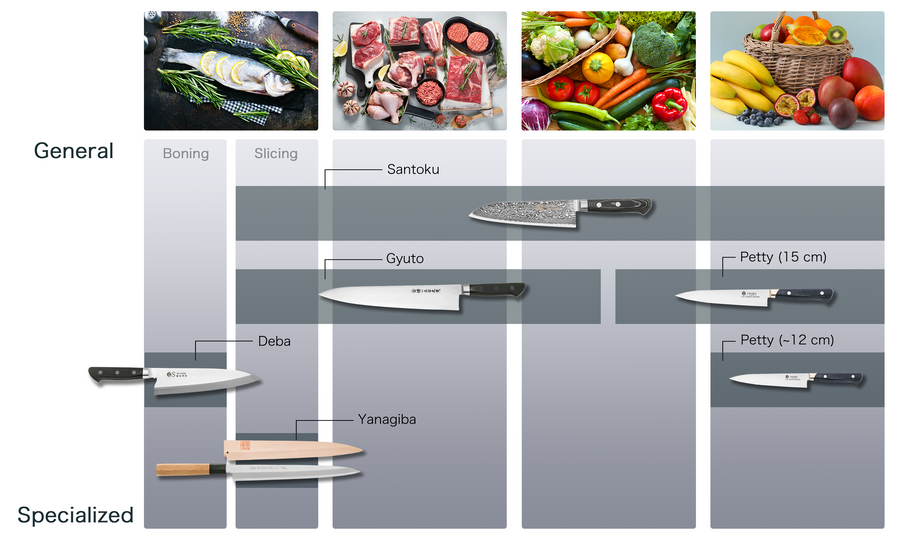Blue Steel #2 Hongasumi Series
The extra wear resistance found in Blue Steel knives makes them usable for long periods without losing cutting ability. Our Hongasumi Series uses Blue Steel #2, comparatively easier to sharpen than Blue Steel #1. It's a series ever popular amongst chefs of Japanese cuisine seeking long edge retention and ease of sharpening.
| Product number | Actual Blade Length (mm) | Full Length (mm) | Total Weight (g) |
|---|---|---|---|
| 1di8-195 | 195 | 300 | 350 |
| 1di8-210 | 210 | 370 | 390 |
| 1di8-225 | 225 | 385 | 450 |
| Blade | Material Name | Handle |
|---|---|---|

Single Edged |
Blue Steel #2 | Magnolia round handle with buffalo horn bolster |

Aideba
Easier to use, and thinner than its heavier Deba counterpart?the Ai-Deba is for skinning, chopping, and filleting fish. But, the blade can chip while performing rougher tasks, or using it on harder bones.
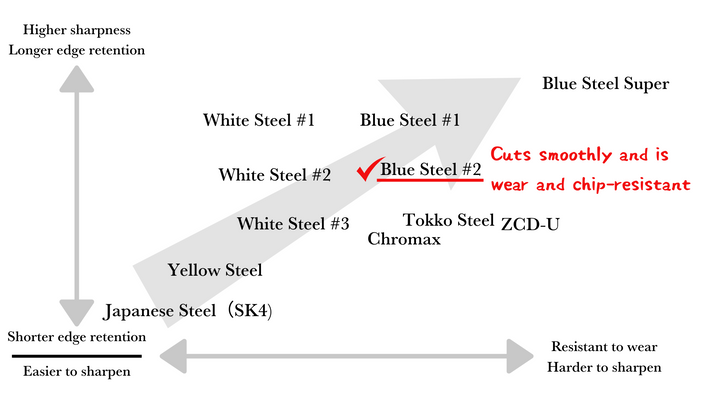
Blue Steel #2
Adding tungsten, chromium, and alloy carbides to White Steel makes for a tough, chip-resistant blade.
Carbon Steel
Blue Steel #2 is made by adding trace amounts of tungsten and alloy carbides (both for hardness), and chromium (for toughness and rust resistance) to White Steel, creating an alloy steel that is very tightly bonded. This also leads to better edge retention compared to White Steel #2, so you can cut better for longer. Professional chefs looking to enter the next level of quality will often choose a Blue Steel #2 knife, but beginners can use this also.
*NOTE: Carbon Steel is susceptible to rust if it is not properly cared for. Please clean and dry the blade regularly during use and after use.
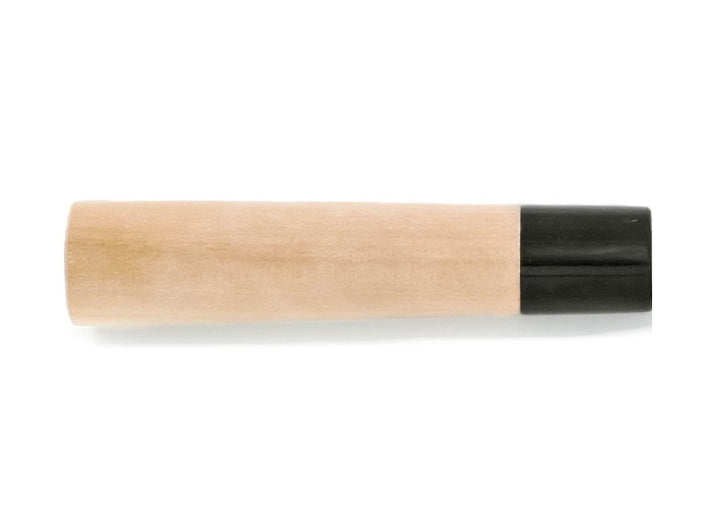
Magnolia Round Handle
Handles made from natural magnolia wood are comfortable to hold. A bolster made from ethically sourced buffalo horn is attached to the handle, then the handle is polished until there is no height gap between the bolster and wood. Over time as the handle ages, the unique grain in magnolia wood further contours this grip to your hand as you continue to use it.
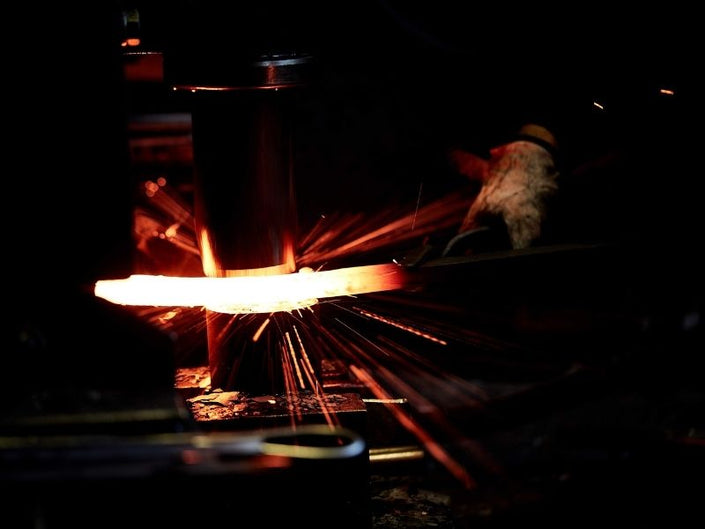
Forge Welded
Forge Welded knives undergo a forging process where steel is heated to high temperatures and then shaped with a hammer. This carefully done process changes the internal structure of the steel, producing a blade with superior hardness levels. Highly skilled craftspeople forge, quench, and create the knife's cutting edge by hand, resulting in a sharp blade with long edge retention.

Optional Engraving
Optional Engraving Service
Sakai Ichimonji provides complimentary engraving using either Japanese Kanji or English Alphabet. Please specify your preference. For details, please visit here
A knife store that has supported the history of knives and food culture in Japan.
It has been 600 years since the birth of swordmaking in the Sakai region of Japan. Sakai Ichimonji Mitsuhide's and it's craftsmen continue to build on that legacy by producing the finest blades in Japan.
This is where the culture of completing a dish of sashimi by "just cutting" and the culture of expressing sharpness as "taste" was born.
For 70 years, we have been connecting the spirit of Sakai's craftsmen with the passion of chefs in Osaka's kitchen equipment shopping district, known as the kitchen of Japan.
We are very happy that our knives can be used by people all over the world.
Precautions
After use, wash off any dirt and wipe thoroughly with a dry cloth to remove any moisture. This product is not for use with frozen foods.This product is handmade, so each piece will be different. Please use the weight and length listed as a guide. Each material is natural and may vary in color. It is not the same as the picture.We take great care with our inventory, but in the unlikely event that we are out of stock, we will contact you by email to let you know.



























